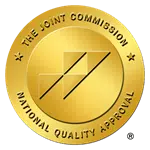Social Detoxification
Some people may not need or want to undergo Clinically Supervised Detox for various reasons. They may instead choose social detoxification.
While not as widely discussed as Clinically Supervised Detox, social detoxification is another common form of detox. Social detox can help many patients start their recovery journey.
During social detox, the patient will go through the withdrawal process without medical intervention. Instead they will go through detox without taking medication to ease withdrawal symptoms but with the use of therapy and counseling under the therapists’ supervision.
It is possible for some patients to detox without medication. But it is safer for patients to do so under the supervision of trained professionals and not try this at home or with friends.
In social detox settings, patients can manage their symptoms through group and individual therapy. During this therapy, patients receive the emotional support they need to recover from substance use disorder from both the therapists and from others going through this process in group work.
Healthcare professionals will monitor them if they are in a professional facility. These professionals will ensure the patient’s safety during withdrawal..
It is important to remember that withdrawal symptoms can be painful. At times, withdrawal symptoms can even be deadly. Therefore, the patient needs to undergo withdrawal under the careful supervision of a healthcare professional.

The Benefits of A Social Detox Program Model
Social detox programs help patients manage their withdrawal symptoms through social interactions, supervised support, and guided counseling sessions.There are several benefits of a social detox model:
1. Cost-effective Approach
- Social detox can be cost-effective for many patients. Clinically-Supervised Detox requires a trained team of medical staff to supervise and administer medication in a hospital or hospital-like setting. This may, unfortunately, be a burdensome cost to patients seeking addiction treatment.
- In contrast, social detox does not require additional medication, which brings the cost down significantly. It is overseen by a team of trained addiction recovery specialists who can help patients emotionally navigate their withdrawal symptoms. It is typically done in an inpatient setting, as the patient’s symptoms can be severe and lead to a relapse. Keeping the patient onsite ensures that they are regularly monitored for their safety.
2. Helps Patients with Long-term Sobriety
- Social detox can help patients develop healthy habits for long-term sobriety. By getting through the painful withdrawal process without the aid of other medications, patients can feel empowered to remain sober. This is true even if they experience cravings after they become sober.
3. Emphasizes patients’ mental health and wellbeing
- Social detox programs emphasize helping patients’ mental health and well-being. The focus is on social support rather than medical intervention. This can help patients feel more supported and connected as they move through the withdrawal phase.
4. Holistic Approach
- Many people are resistant to detoxing with the use of medication. A social detox is a good option for patients who do not require medication for withdrawal. This is because it can help them manage withdrawals without taking more substances.
5. Focus on Peer Support
- Patients who undergo social detox are more likely to be surrounded by supportive peers than those who undergo Clinically-Supervised detox. They replace spending their time in a hospital bed with spending time in group therapy. They also will be encouraged to partake in other activities with their peers.
- These experiences can help create habits for long-lasting sobriety once the withdrawal phase has passed. Peer support is crucial for patients as they re-learn how to interact socially. This is essential as they embark on their journey to sobriety and long-term recovery.


















